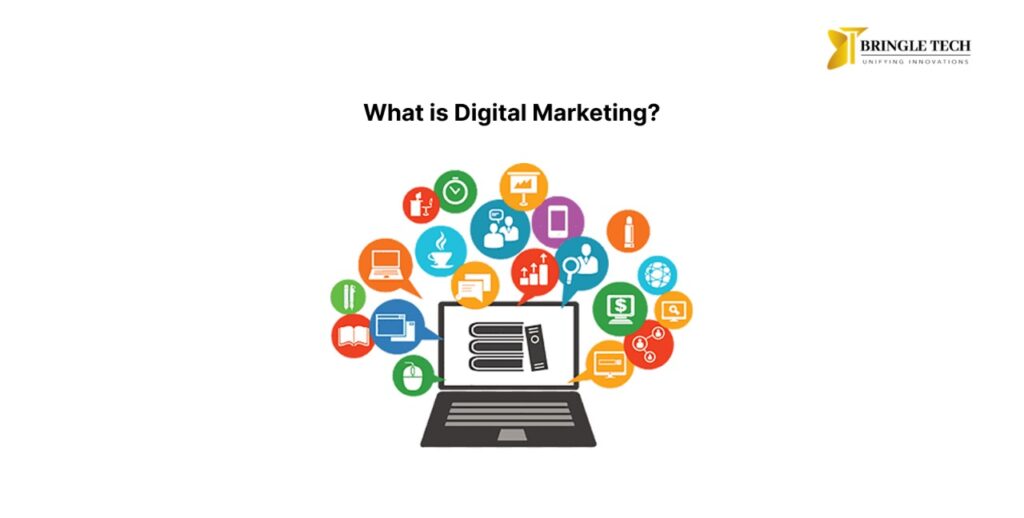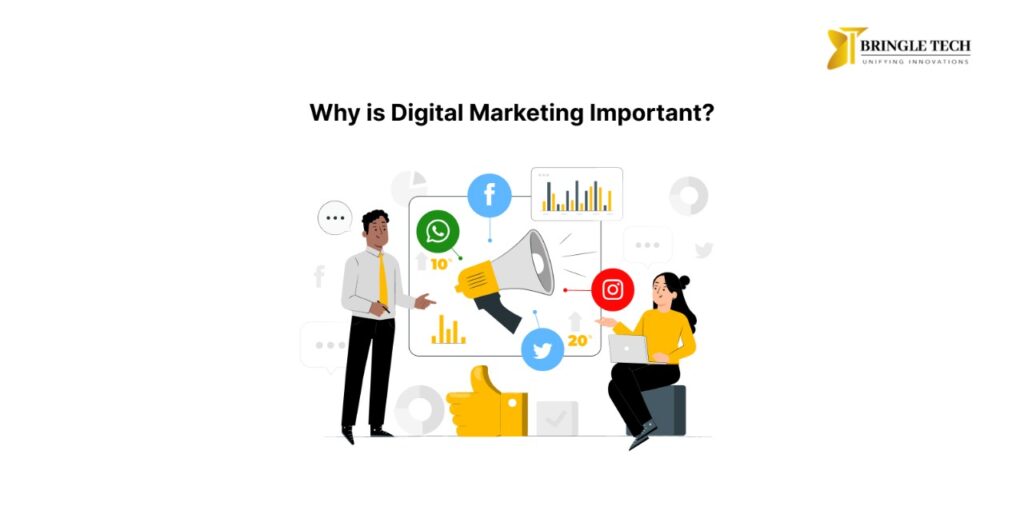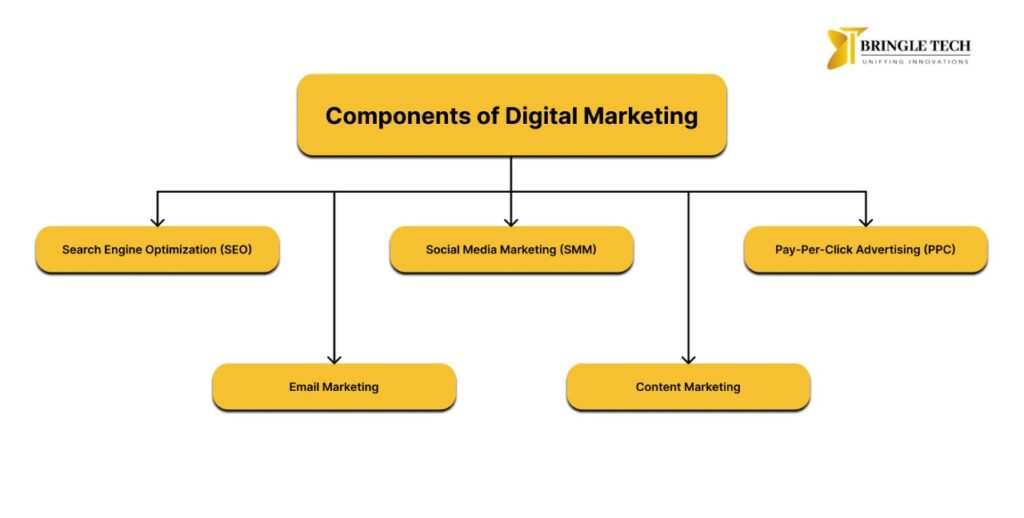In today’s fast-paced digital world, traditional marketing methods are no longer enough. Customers are spending more time online than ever — searching, shopping, and making decisions. This is where digital marketing steps in. But what exactly is digital marketing, and why should your business care?
Let’s dive into what digital marketing means, how it works, and why it’s no longer optional for businesses in 2025.
What is Digital Marketing?

Digital marketing refers to the promotion of products or services using digital channels like search engines, websites, social media, email, and mobile apps. Unlike traditional marketing (billboards, newspapers, TV), digital marketing focuses on targeting the right audience at the right time through data-driven strategies.
It includes a wide range of online tactics such as:
- Search Engine Optimization (SEO)
- Social Media Marketing (SMM)
- Pay-Per-Click Advertising (PPC)
- Email Marketing
- Content Marketing
- Affiliate & Influencer Marketing
Why is Digital Marketing Important?

Here’s why digital marketing is essential for your business:
1. Increases Online Visibility
Most users search online before buying anything. If you’re not visible on search engines or social media, you’re missing out on huge traffic.
2. Targets the Right Audience
With tools like Google Ads and Facebook Ads, you can target people based on location, interests, behavior, and even device usage.
3. Cost-Effective Compared to Traditional Ads
Digital marketing often delivers higher ROI. Even with a small budget, businesses can reach thousands of people.
4. Real-Time Data and Analytics
Track performance in real-time. Know what’s working and optimize your campaigns accordingly.
5. Builds Stronger Customer Relationships
Through regular content, emails, and social media engagement, you build trust and credibility with your audience.
Components of Digital Marketing

1. Search Engine Optimization (SEO)
Helps your website rank higher on Google so users can find you easily.
Example: If someone searches “Best digital marketing agency in India”, a well-optimized site can appear on top.
2. Social Media Marketing (SMM)
Using platforms like Instagram, LinkedIn, and Facebook to grow your brand presence and engage users.
3. Pay-Per-Click Advertising (PPC)
Instant traffic through paid ads. You pay only when someone clicks your ad.
4. Email Marketing
Reach your audience directly in their inbox with offers, news, or educational content.
5. Content Marketing
Creating valuable content (blogs, videos, infographics) that informs and attracts users organically.
Real-World Example
Let’s say you own a clothing store. You start posting fashion tips on Instagram, write blogs about seasonal trends, and run Google Ads. In a few months, your online orders double. That’s the power of digital marketing — scalable growth.
Tools to Start With
Some beginner-friendly digital marketing tools:
- Google Analytics & Search Console
- Meta Ads Manager
- SEMrush / Ahrefs (for SEO)
- Mailchimp (for email)
- Canva (for creatives)
Final Thoughts
Whether you’re a startup, small business, or large enterprise — digital marketing helps you stay competitive, visible, and connected to your audience. It’s no longer optional; it’s a must-have growth strategy.
